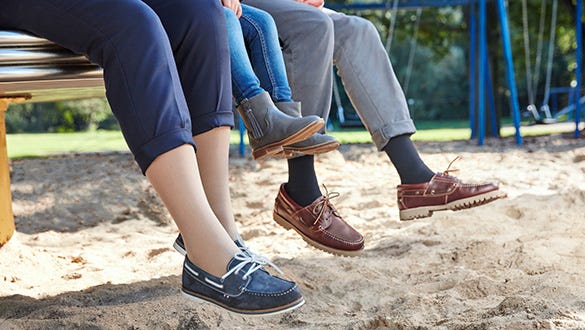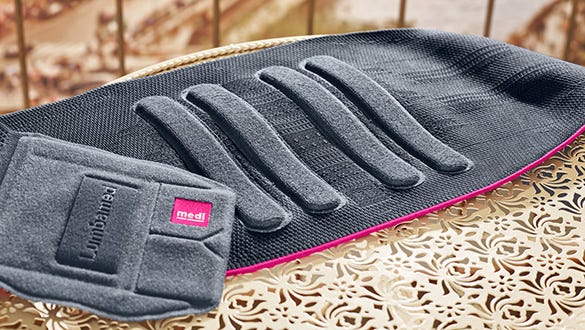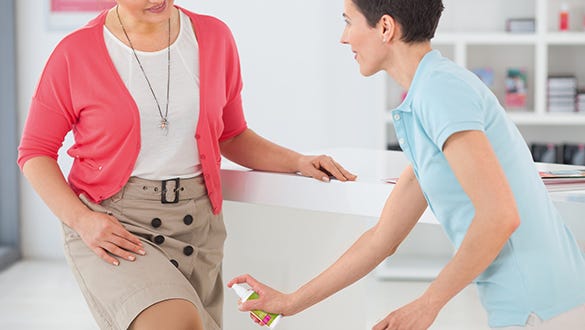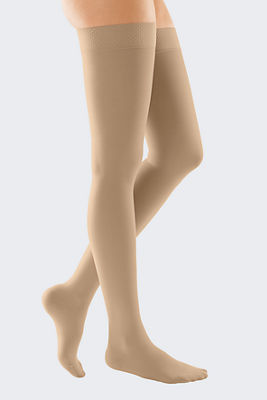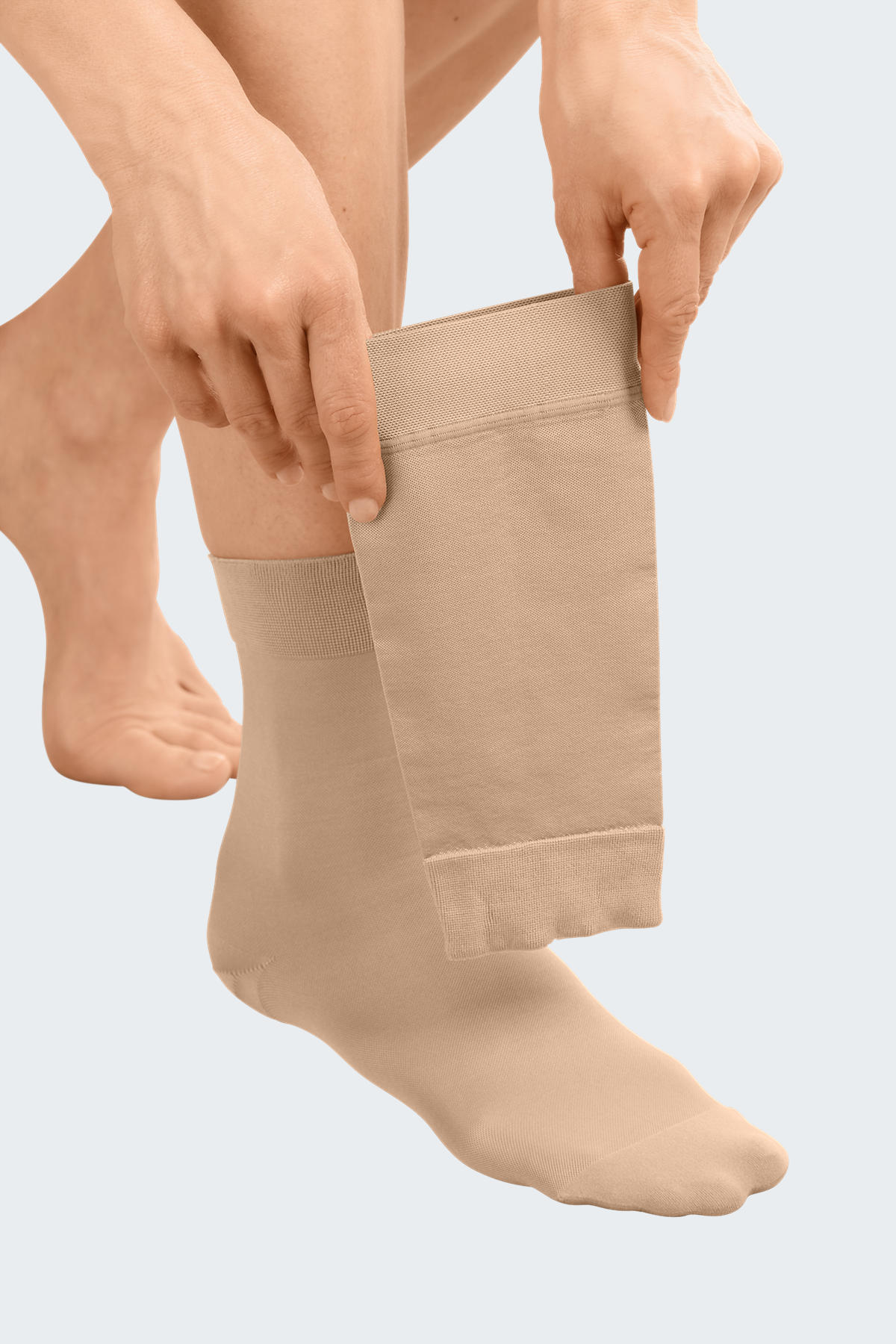- Free First Class Delivery
- Buyer Protection
- Secure Online Shopping
- Healthcare Professional? Click here
Nursing and healthcare professions
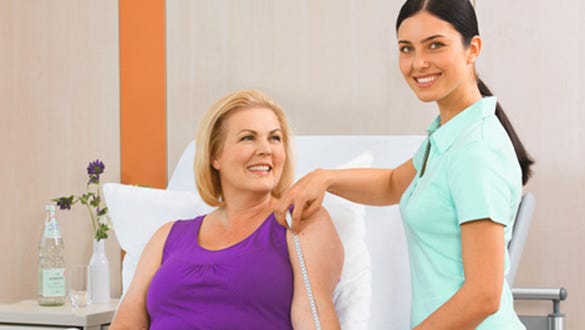

Categories
Handling heavy loads in nursing and healthcare professions
Looking after and helping other people comes naturally to you. Healthcare professionals and nurses, such as hospital or geriatric nurses are often totally absorbed in their work. They help patients get back into bed, wash them, sort the pills and potions and are always on call. Many feel physically and emotionally stressed by this. Shift work, pressured work time, caring for the gravely ill and difficult care situations - you need to find a means to restore the balance.
It's certainly a bit of a paradox: precisely the group of healthcare professionals who look after others is also a risk group for occupational stress and damage to health. If you watch your back while working, protect your skin, reduce stress, eat regular meals and get plenty of exercise, you'll be able to permanently beat the challenges of caring for others. There are various ways in which you too, as a caregiver, can stay fit and healthy in the long term.
Protect your back!
Making the beds, lugging laundry sacks around and turning bed-ridden patients – all that can cause lower back pain.
Heed a couple of principles for back-friendly working practices:
- Wear comfortable non-slip shoes and make sure you have a secure stance and a straight back.
- Avoid working bent to the side.
- Use aids such as height adjustable beds and lifters.
Protect your skin
It is very important for healthcare professionals to wash their hands thoroughly and often. As a rule, it just as common to wear waterproof gloves in daily routine as it is to come into contact with cleaning and surface disinfectants.
That's why the skin of the hands needs extra special care:
Put on hand cream regularly and don't wear gloves for more than two hours at a time if possible. These should be free of powder and thiuram.
Experts also advise: Wash your hands less and disinfect them more, so that the skin doesn't dry out.
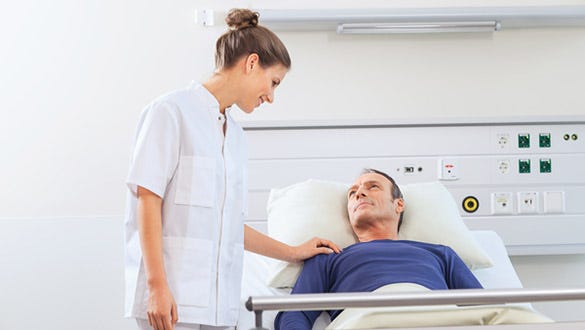

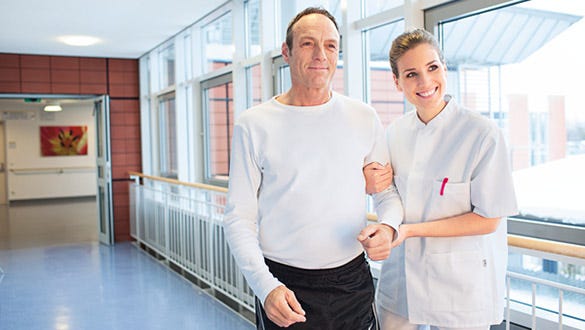

Counter-stress
According to the 2012 AOK report on days off work, people employed in the health and welfare sectors are most commonly affected by burnout.
But there are people who stay healthy and enjoy life despite the challenging job. Psychologists refer to such individuals as resilient. Are you one of them? Everybody can train their resilience - their so-called "psychological immune system" - and thus guard themselves against everyday stress factors. Many books have now been published on the subject of "resilience" and you can find plenty about it on the Internet too.
Eating properly when on shift work
Shift work is always on the agenda in care homes and hospitals. But all of us who work in the evenings or at night are actually working against their biological clocks.
These dietary tips will help you through the night and nourish your body and soul:
- Don't eat greasy, fried food or meals that are difficult to digest – these make you tired. On the other hand, protein and carbohydrates in noodles, potatoes, bread, quark or eggs are good for you.
- Eat small portions. These mean less work for the digestive tract, because it also rests at night.
- Eat a little something every three to four hours, this way, you will stay fit.
Be good to your legs and veins!
You know the story: you stand a lot at work, do a quick shop on your way home in the car and you often don't have time for sports.
Do your legs feel tired and heavy? If so, wearing medical compression stockings while you work will really make difference to how they feel. The defined pressure gradient in compression stockings ensures that the venous valves closes and the blood is pumped back to the heart more quickly. So your legs feel fit and relaxed all day long.
One very special feature of medical compression stockings from medi is that they don't look like medical stockings. They are as sheer as nylons and bang up to date due to a large selection of standard and trend colours for every fashion season.
You should also play sports to keep your veins healthy! If you don't have the time, simply try to modify your behaviour by doing just a couple of things.
- Ride your bike to work or get off the bus earlier and walk the rest of the way.
- Park your car a little way from the office.
- Take the stairs.
- Go for a walk after work. This prevents venous diseases, relaxes the back, and clears the head.

